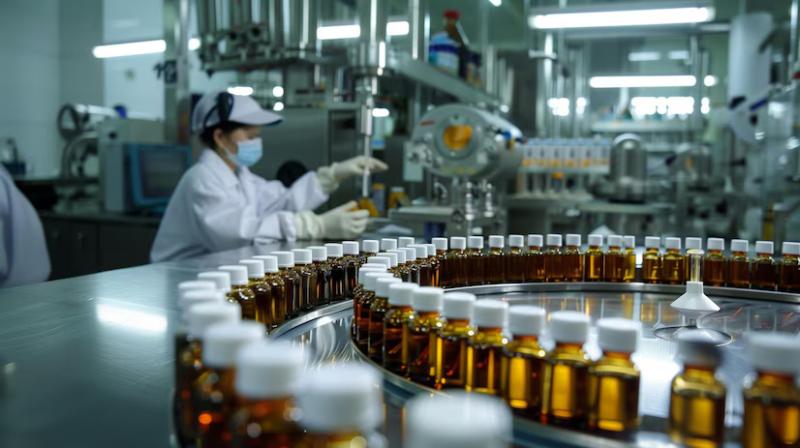Third Party Pharma Manufacturing: A Growing Trend in the Pharmaceutical Ind

In today's fast-paced pharmaceutical industry, companies continually look for efficient ways to meet increasing demand, reduce costs, and streamline production. One of the most prominent solutions that has emerged in recent years is Third Party Pharma Manufacturing, also known as contract manufacturing. This model allows pharmaceutical companies to outsource the production of drugs and other medical products to specialized manufacturers, while focusing on other core areas such as research, marketing, and sales.
What is Third Party Pharma Manufacturing?
Third Party Pharma Manufacturing refers to the outsourcing of pharmaceutical products' production to a manufacturer that specializes in large-scale production. These third-party manufacturers work under a contract or agreement to produce medicines as per the specifications provided by the pharmaceutical company that owns the product. This business model provides pharmaceutical companies with the ability to focus on key aspects such as drug development, brand building, and market expansion, leaving the complex manufacturing process in the hands of specialized manufacturers.
Key Advantages of Third Party Pharma Manufacturing
Cost-Effective Production One of the most significant benefits of third-party manufacturing is cost savings. Pharmaceutical companies don’t need to invest heavily in building or maintaining manufacturing facilities. The contract manufacturer takes care of production infrastructure, labor, and logistics, allowing companies to scale production without incurring substantial capital expenditure.
Focus on Core Competencies Pharma companies that outsource production can concentrate on their core competencies, such as research and development, marketing, and distribution. Instead of getting bogged down by the complexities of manufacturing processes, these companies can focus on developing innovative products and expanding their market presence.
Flexibility and Scalability Contract manufacturers often have the flexibility to scale production according to the demand for the pharmaceutical products. This is particularly useful for smaller companies that may have fluctuating production needs. Third-party manufacturers can adjust production levels to meet the growing or seasonal demand for a specific product.
Regulatory Compliance Reputable third-party manufacturers are typically certified by industry bodies and follow strict regulatory standards, such as WHO-GMP (World Health Organization Good Manufacturing Practices) or FDA approvals. This ensures that the products are manufactured to the highest quality standards and comply with the necessary guidelines, reducing the burden of regulatory compliance for the pharma company.
Faster Time to Market By outsourcing the manufacturing process to a third-party manufacturer, pharmaceutical companies can reduce the time it takes to bring a product to market. These manufacturers have the infrastructure, technical expertise, and established processes in place to produce large quantities of drugs quickly and efficiently, helping pharma companies meet market demand faster.
Challenges in Third Party Pharma Manufacturing
While the benefits of third-party pharma manufacturing are evident, the model is not without its challenges. These include:
Quality Control Although most third-party manufacturers adhere to stringent standards, ensuring quality consistency across all batches remains a challenge. Pharma companies need to conduct regular audits and have strong quality control measures in place to ensure their product meets regulatory standards.
Intellectual Property Concerns Handing over the manufacturing process to an external company may lead to concerns about protecting intellectual property. Pharma companies need to establish clear contracts and confidentiality agreements to ensure that their formulations and proprietary information remain secure.
Supply Chain Reliability Depending on a third-party for manufacturing can create vulnerabilities in the supply chain. Delays or disruptions at the manufacturer's end can affect the timely delivery of products. Ensuring strong communication and a solid relationship with the contract manufacturer is crucial to mitigating these risks.
The Role of Third Party Manufacturers in the Pharma Industry
Third-party manufacturers play a pivotal role in the global pharmaceutical industry. From generic drugs to specialty medicines, they produce a wide array of products that help meet the increasing healthcare needs around the world. Their ability to manage large-scale production efficiently allows pharmaceutical companies to innovate and bring life-saving drugs to the market at competitive prices.
Pharmaceutical companies like Philanto Wellness, a WHO-GMP certified manufacturer, exemplify how third-party manufacturing can meet the industry’s highest standards. Offering services such as pharma manufacturing and contract manufacturing, companies like Philanto contribute to the global pharmaceutical supply chain by ensuring safe, reliable, and high-quality drug production.
Conclusion
Third Party Pharma Manufacturing has become a vital strategy for pharmaceutical companies aiming to stay competitive and agile in an increasingly complex industry. By outsourcing manufacturing to third-party partners, pharma companies can reduce costs, focus on innovation, and ensure that their products are of the highest quality. As the demand for pharmaceuticals continues to rise, the importance of reliable, efficient third-party manufacturers will only grow.
Comments